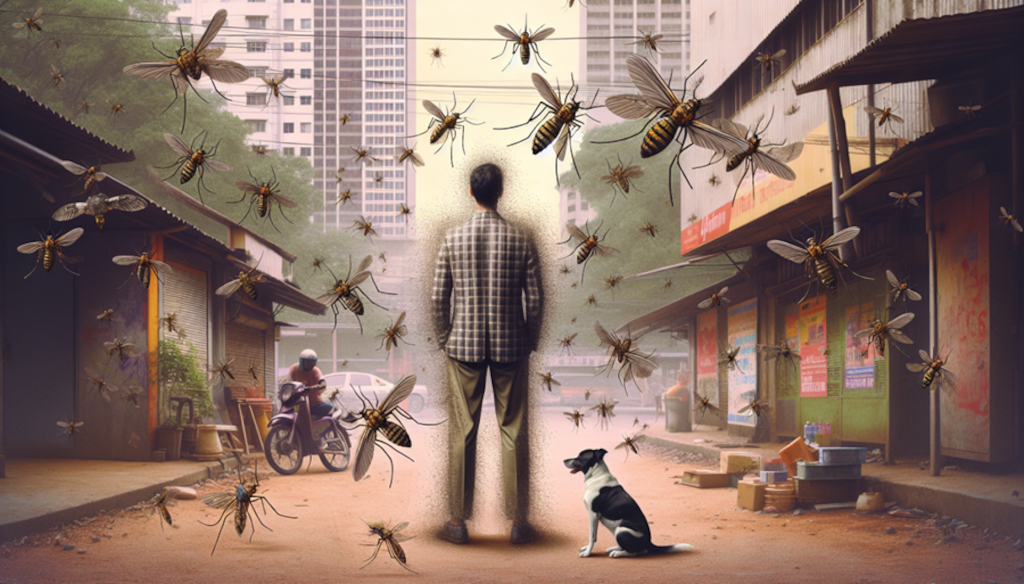We’ve spent decades battling mosquito-borne illnesses—malaria, dengue, Zika—trying to break the chain of transmission. With all the science and effort poured into disease control, a surprisingly persistent question remains:
Why don’t mosquitoes evolve to stop transmitting these diseases?
It seems logical, right? If a virus or parasite harms the mosquito, shouldn’t evolution nudge it toward avoiding infection altogether? But the reality is far more fascinating—and frustrating.
The surprising truth: mosquitoes benefit from carrying disease (sort of)
Natural selection doesn’t care about human suffering. It only “cares” about one thing: reproductive success.
For mosquitoes, this means anything that helps them survive and reproduce is favored. If carrying a disease does not seriously reduce their ability to do those two things, there’s little reason for evolution to weed it out.
In fact, in many cases, transmitting disease is a side effect that doesn’t harm the mosquito at all. Sometimes, it might even help.
Example: The case of malaria
Studies show that the Plasmodium parasite (the culprit behind malaria) has evolved to be a relatively “quiet guest” in the mosquito. It typically doesn’t kill its host or drastically shorten its lifespan. According to a 2019 study published in Nature, some Anopheles mosquitoes infected with malaria even had slightly enhanced survival in early stages of infection.
If malaria doesn’t hurt the mosquito, natural selection doesn’t work against it. Instead, an uneasy evolutionary truce forms: the parasite doesn’t overburden the mosquito, and the mosquito unknowingly helps spread it.
When does transmission actually hurt mosquitoes?
There are exceptions—but they are rare.
If a pathogen becomes too deadly to the mosquito—cutting into its lifespan or preventing it from reproducing—then evolutionary pressure might favor mosquitoes that are resistant to infection or less likely to spread the disease.
Take chikungunya, for instance. In some studies, Aedes mosquitoes infected with the chikungunya virus showed reduced feeding behavior and shorter lifespan. This can tip the evolutionary scales—but usually only if the drop in fitness is consistent and severe.
But here’s the twist: pathogens play dirty, too
Many mosquito-borne viruses and parasites are masters of manipulation. They change the mosquito’s behavior to improve their own chances of transmission. Dengue virus, for example, has been shown to alter mosquito behavior—making them feed more frequently or become more attracted to human scents.
So instead of mosquitoes evolving to avoid pathogens, pathogens evolve to better exploit mosquitoes.
What about insecticides and evolution?
Now, you might think insecticides would force mosquitoes to evolve to stop carrying disease. But that’s not quite how it works.
Insecticides create massive selective pressure for resistance to the chemicals. We now see entire populations of mosquitoes that are resistant to common pesticides. But this pressure targets mosquito survival, not their disease-carrying capabilities.
Unless avoiding a virus helps mosquitoes escape death or reproduce more successfully, evolution doesn’t care. Vector competence (a mosquito’s ability to become infected and transmit a pathogen) evolves slowly unless it impacts fitness in a significant way.
A coevolutionary dance with no clear winner
Over time, mosquitoes and the germs they carry have settled into a complex truce. Pathogens evolve to spare the mosquito (so they can hitch a ride), and mosquitoes don’t suffer enough to fight back.
In this evolutionary tug of war, neither side wants to kill the host. Stealth wins over brutality.
So what does this mean for us?
It means that relying on nature to “fix” disease transmission won’t work.
If we want to stop mosquitoes from spreading disease, we’ll need to break the cycle ourselves—through genetic engineering (like CRISPR-based gene drives), vaccines, or cutting-edge mosquito sterilization programs. One fascinating example? The release of Wolbachia-infected mosquitoes, which makes it harder for viruses like dengue to replicate inside the insect, reduces the spread.
The bottom line
Evolution doesn’t play fair. Mosquitoes won’t stop carrying disease unless it stops them from surviving and reproducing.
And since most diseases don’t damage mosquitoes enough to matter, they keep buzzing—and spreading—without a care in the world.
It’s up to us to change the rules of the game. Nature, as always, isn’t on our side. It’s just doing what works.




Leave a Comment